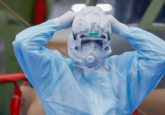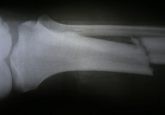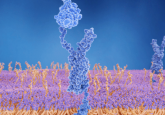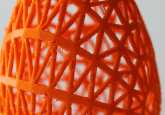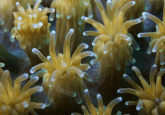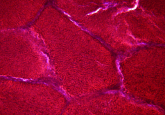Top 4 grants in regenerative medicine: January 2023
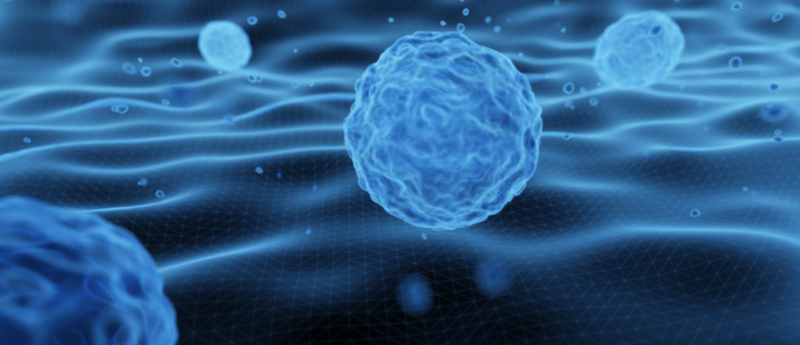
This month’s top grants in regenerative medicine, sourced from Dimensions, include a smart 3D-printable wound dressing that creates a pro-regenerative environment, developing a new family of viscoelastic hydrogels with controlled properties, identifying the mechanical niches that immune cells experience in healing and non-healing, and investigating how injury-driven de-differentiation is linked to loss of cellular function.
Check out this month’s top grants in regenerative medicine:
- Smart and multiFunctional 3D printable prO-regenerative biologiCal matrix modulating mEchanotRansduction as advancEd theraPy to treAt skIn chRonic wounds (FORCE REPAIR)
- DEVISE: engineered viscoelasticity in regenerative microenvironments
- Engineering cellular self-organization by controlling the immune-mechanical interplay
- REVERT Regeneration as a Vulnerable State for Microbe-Driven Injury and Tumorigenesis
Smart and multiFunctional 3D printable prO-regenerative biologiCal matrix modulating mEchanotRansduction as advancEd theraPy to treAt skIn chRonic wounds (FORCE REPAIR)
Funding amount: US$ 5.6 million
Funding period: 1 January 2023 – 31 December 2026
Funder: European Commission (EC)
Researcher organization: A collaboration of international research institutes
The aim of FORCE REPAIR is to develop a smart and multifunctional wound dressing that creates a pro-regenerative environment with the mechanical stability required to effectively treat chronic wounds. This will take the form of a 3D-printable wound dressing that consists of an antibacterial and bioadhesive bioink with antibiotics and anti-inflammatory loaded nanocapsules, elastin-like polypeptides that promote innervation and vascularization and Wharton Gel Complex to prevent oxidative stress and boost important extracellular matrix proteins. FORCE REPAIR will create a biological scaffold that can be tailored to the patient’s needs. Additionally, the dressing will be activated by UV light to induce a contractile force to help with wound closure and activate skin regeneration.
DEVISE: engineered viscoelasticity in regenerative microenvironments
Funding amount: US$ 2.9 million
Funding period: 1 January 2023 – 31 December 2027
Funder: Engineering and Physical Science Research Council (EPSRC)
Researcher organization: University of Glasgow (UK)
The researchers working on this project hypothesize that viscoelasticity will play a fundamental role in the differentiation of MSCs and, therefore, the design of regenerative materials. This project aims to develop a new family of viscoelastic hydrogels with controlled properties including biochemical functionalities, extreme mechanical properties and mechanical gradients. Additionally, it will advance Brillouin microscopy in order to monitor the local viscoelastic properties of these cell-laden materials as a function of time. The researchers will use viscoelastic materials to promote bone regeneration in vivo and further improve Brillouin microscopy to observe the viscoelastic properties of regenerative microenvironments in vivo.
Engineering cellular self-organization by controlling the immune-mechanical interplay
Funding amount: US$ 2.8 million
Funding period: 1 January 2023 – 31 December 2027
Funder: European Commission (EC)
Researcher organization: Charité – University Medicine Berlin (Germany)
Little is understood about the immune-mechanical coupling involved in the scar-free regeneration of physiological tissue homeostasis. This research aims to utilize the novel cross-disciplinary field of immuno-mechanics in a project to: identify the different mechanical niches that immune cells experience in successful healing and nonhealing; engineer synthetic niches to control fibroblasts and fibroblast-immune cell interactions to steer cell self-organization and matrix formation in vitro; and verify that synthetic niches reprogram hematoma composition to later reduce scaring in vivo.
REVERT Regeneration as a Vulnerable State for Microbe-Driven Injury and Tumorigenesis
Funding amount: US$ 1.6 million
Funding period: 1 January 2023 – 31 January 2028
Funder: European Commission (EC)
Researcher organization: Charité – University Medicine Berlin (Germany)
Recent research has found that mucosal injuries initiate regenerative repair programs that promote the disruption of cellular hierarchies and the reversal of differentiated cells back to the proliferative stem cell state to enable rapid injury repair. This research program, REVERT, proposes that injury-driven de-differentiation could be linked to the loss of cellular functions that control the microbiota, especially in the colon, and causes direct exposure of “de novo stem cells” to bacteria and their genotoxic virulence factors.
REVERT will investigate the long-term consequences of transient interactions on molecular, cellular and tissue levels and explore the impact of the regenerative state on mucosal microbial ecology and function. Stem cell biology approaches such as lineage tracing, organoids and assembloids will be combined with microbiology techniques including gnotobiotic infection models along with the use of complex systems biology technologies to create a picture of dynamic tissue responses to injuries and understand how microbes interfere with them.
Brought to you with support from:

